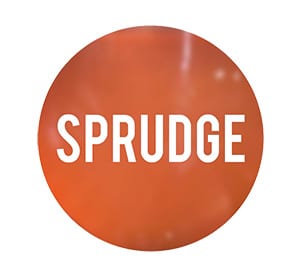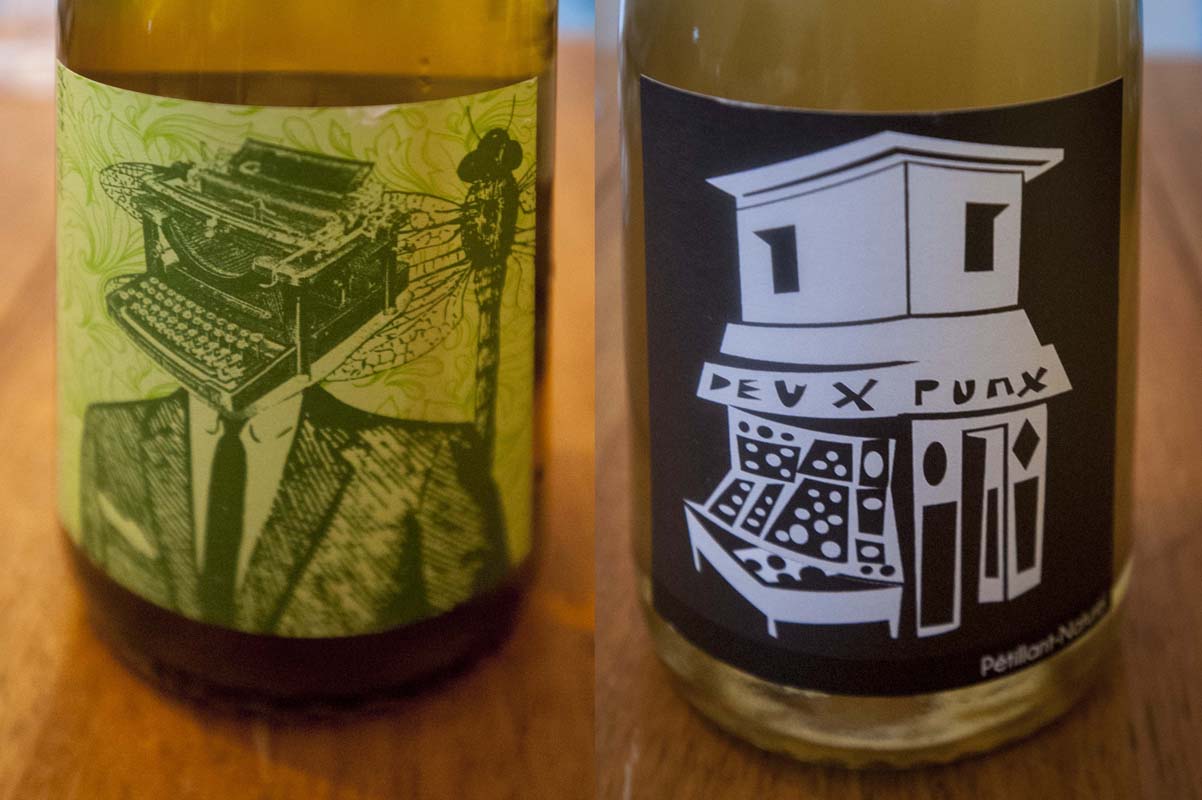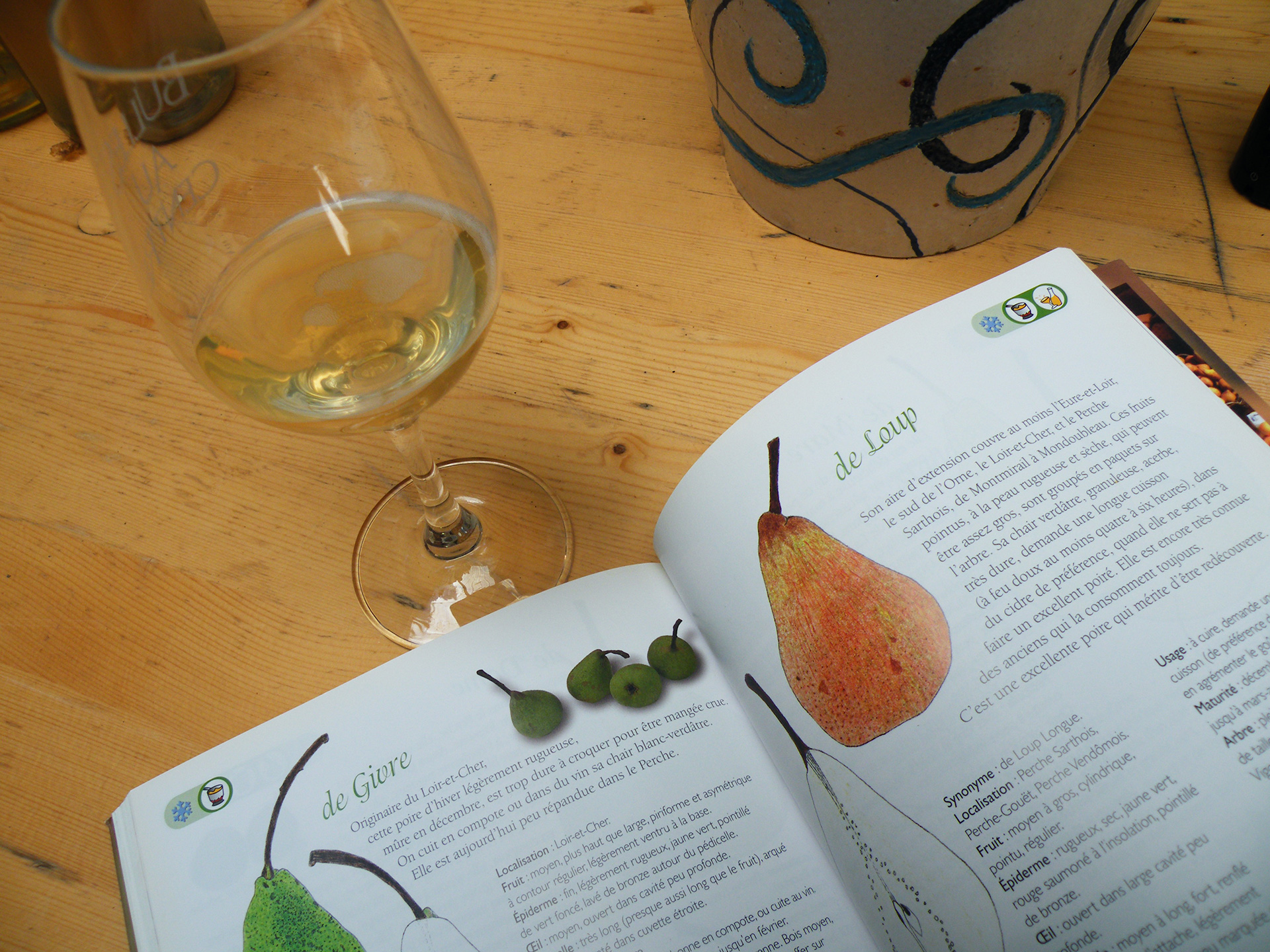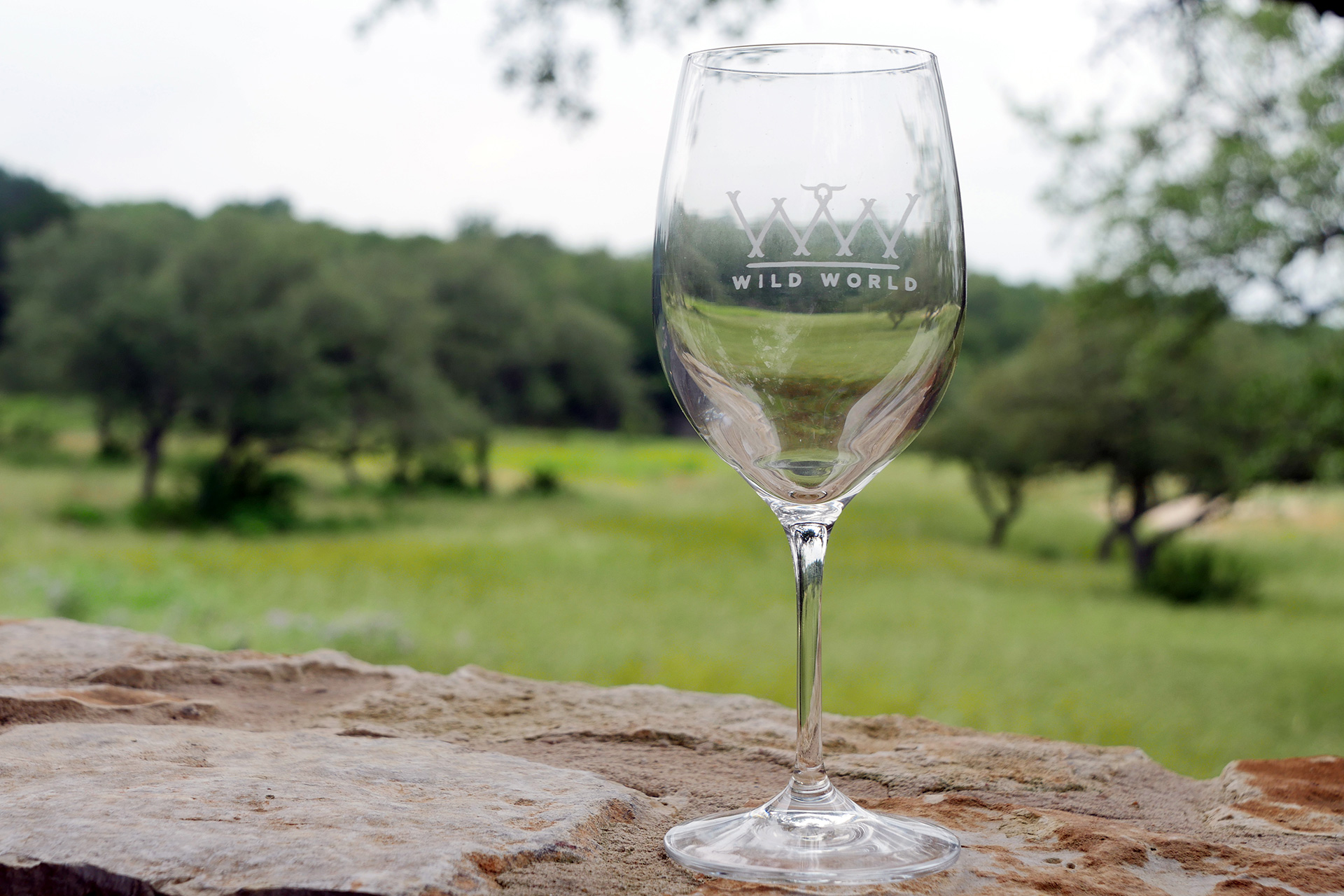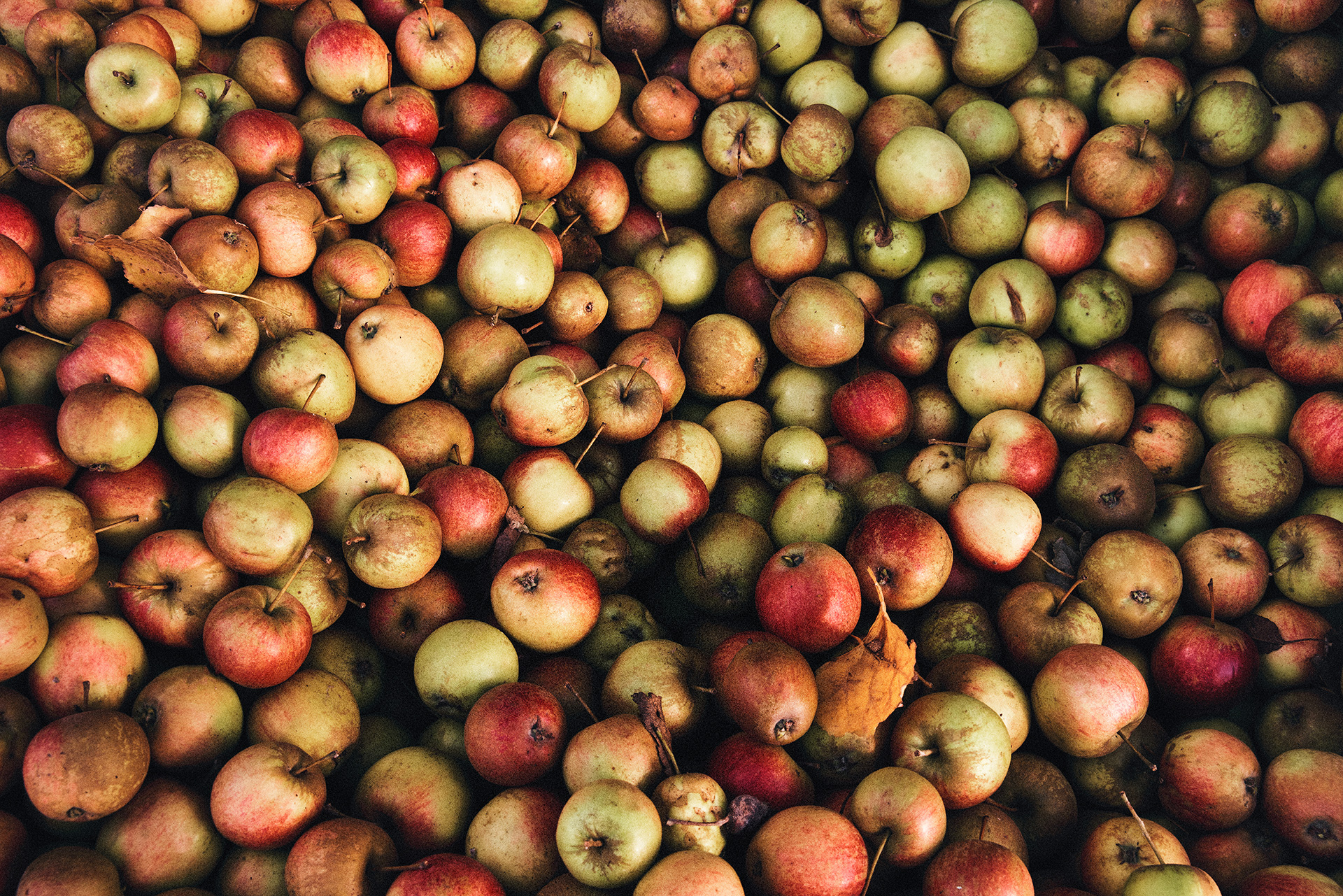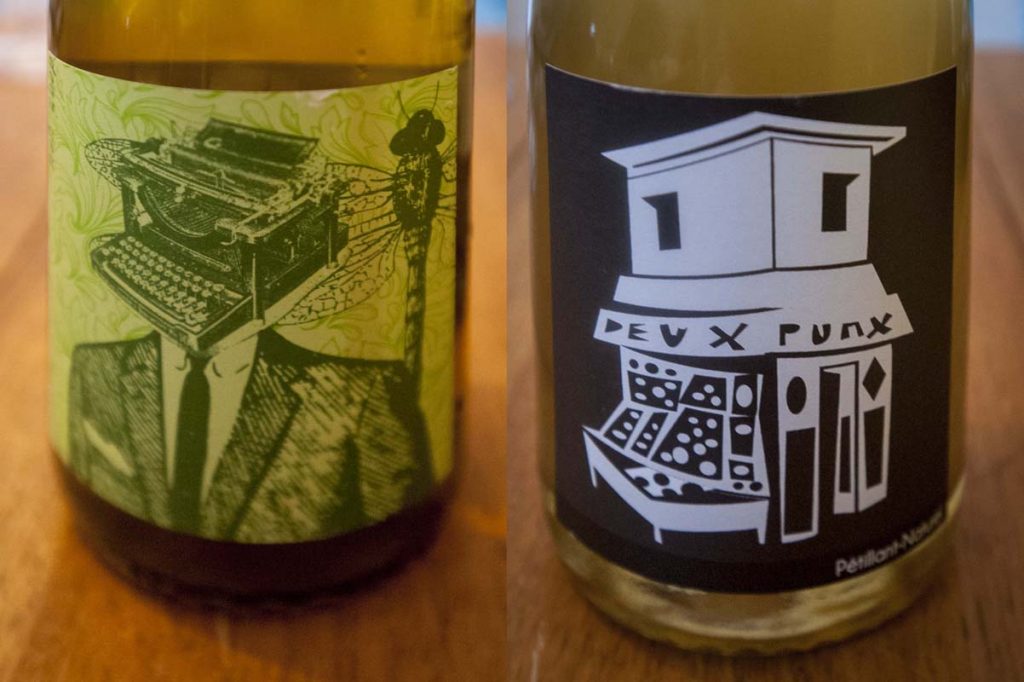
My introduction to a Deux Punx wine was just shortly after having arrived in the United States. It was the first time that I had tasted an American wine with an edginess and liveliness to it that reminded me of my favourite European wines that I had left behind. Promising, I thought. Nearly two years later, it was high time to meet the makers.
Predictably, with a name like Deux Punx, their website proclaiming “California wines made by two aging punkers,” one might expect scuffed Vans and ripped clothing. But meeting Dan Schaaf—one half of California’s Deux Punx duo—there is nothing of the sort. Instead Schaaf is smartly dressed in a button-down plaid shirt, certainly a requirement of his day job as co-owner of a water resources engineering firm. Further upturning preconceived notions, Schaaf tells me emphatically “we’ll never quit our jobs!” explaining how he—and his partner Aaron Olson, a software engineer—have no intention of ever trading the security of their straight gigs for full-time winemaking.
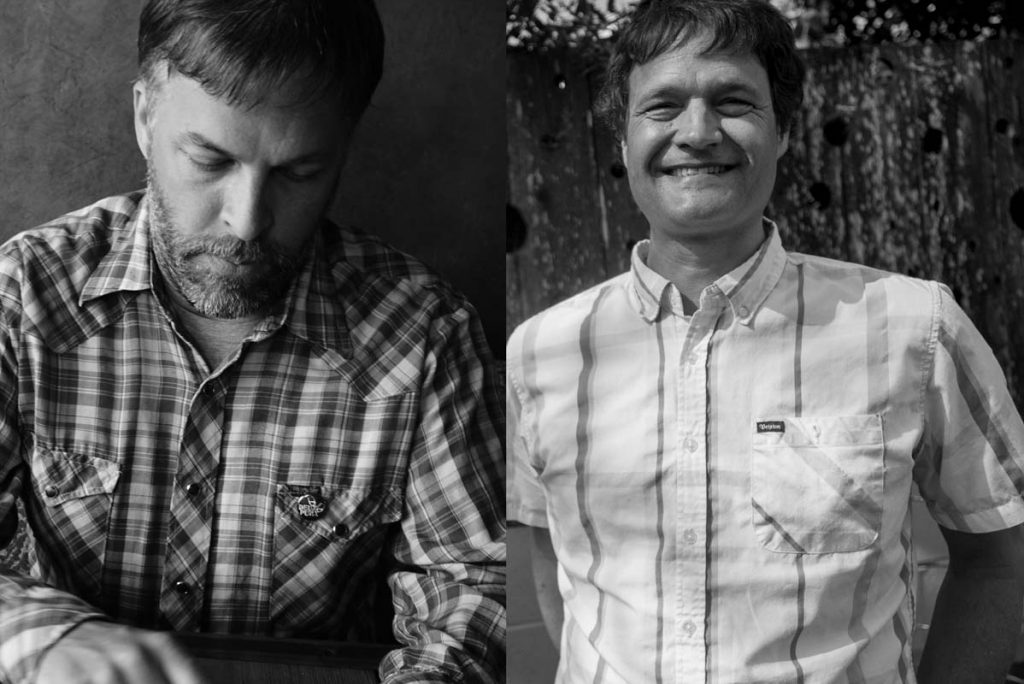
On the contrary, Schaaf believes that being employed full-time in an unrelated field can bring a heightened sense of critical perspective to their winemaking endeavours. But to understand Deux Punx as winemakers, you need to look beyond the day jobs to the activities that filled their formative years. For Schaaf, it was skateboarding, and for Olson, it was playing drums in a hardcore band. “It [the punk attitude] was the one thing we had in common,” says Schaaf, other than the obvious desire to make wine. Now the punk references make sense.
It’s certainly hard to ignore the parallels between their love of punk/skate culture and the back-to-basics, damn-the-man ethos of natural winemaking. Risk and freedom are deeply embedded in their DNA, as illustrated by their lack of formal training in winemaking, but love of DIY. “We didn’t do the traditional internships, we’re doing it piecemeal over the years,” says Schaaf, adding, “Aaron and I have always thought about it that way, ‘let’s not be influenced, let’s be outsiders a little bit.’”
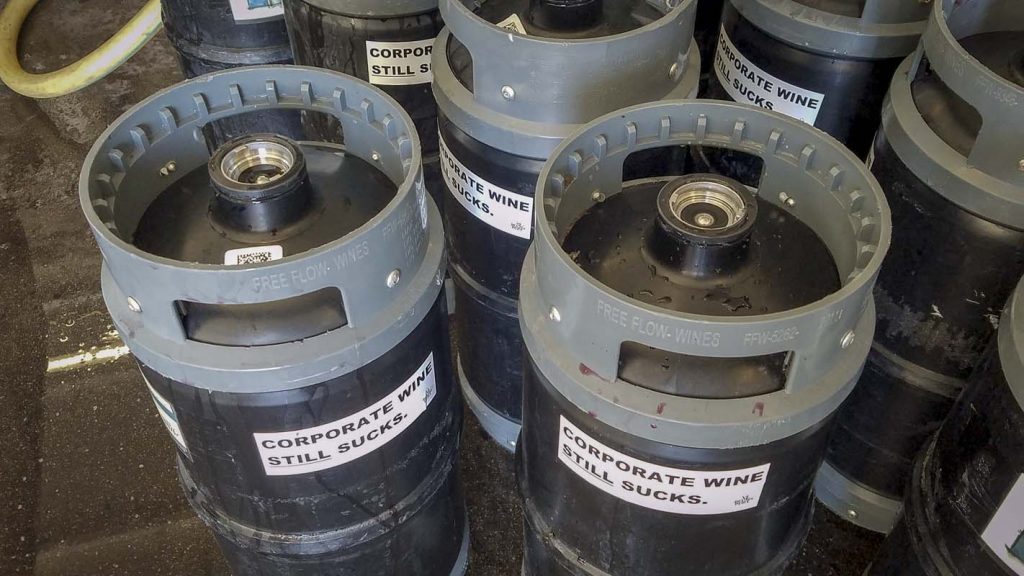
It’s a very anti-establishment, non-conformist approach, defined by the balancing act of, on the one hand, not overthinking the winemaking process and, on the other, remaining critical of it. But whilst it’s a romantic ideal to not be influenced by others, you still need to actually know how to make wine—a long, slow, and laborious process at the best of times. For this, Deux Punx is not above reaching out to other winemakers, for example when they reached out to Hank Beckmeyer of La Clarine Farm with help in tracking down the right vineyards. In his typical straightforwardness, Schaaf simply says, “you just ask.”
Deux Punx is hell-bent on following its own path, making its own mistakes, and specifically making wines that differ from their peers. “We don’t want to make weird wine—we just want to make something no one else is making,” says Schaaf.
But to believe that Deux Punx’s wines are in any way substandard or haphazardly thrown together would be a great injustice to the thoughtfulness that goes into each cuvée. Not overthinking things does not equal an absence of thoughtfulness. Just like a skater’s gazelle flip is an orchestration of precise movements that could go horribly wrong at any moment, so do Deux Punx wines keep all their moving parts cohesively together. Their wines taste fresh and vibrant, sometimes young, but never unsophisticated. There is a generosity and openness to them. Punk in their desire to not be influenced by others, the DIY mentality, but not as a middle finger to taste.
“The commonality is frugality,” explains Schaaf in reference to their shared approach to all things. Like skaters pooling together scraps of lumber and plywood to make a DIY ramp, Deux Punx loves the challenge of making something out of nothing, like their homemade carbonic fermentor made of saran wrap. “We made a poor man’s carbonic temple,” says Schaaf. Or their DIY keg filler used to fill the old beer kegs repurposed from a motorcycle club. Returning to the theme of risk, Deux Punx tries a new varietal and a new technique each year. Although to help mitigate these potential perils, “all the wines are made the exact same way—whites, reds. It keeps it really easy.”
The story behind the name is another example of pure Deux Punx simplicity. Instead of it being a carefully crafted nod to indie French winemakers, the idea came from a French neighbor, a spur-of-the-moment decision. “We didn’t overthink…I said, ‘That’s the name!’” recalls Schaaf. Simplicity in all things, pragmatic but never dogmatic.
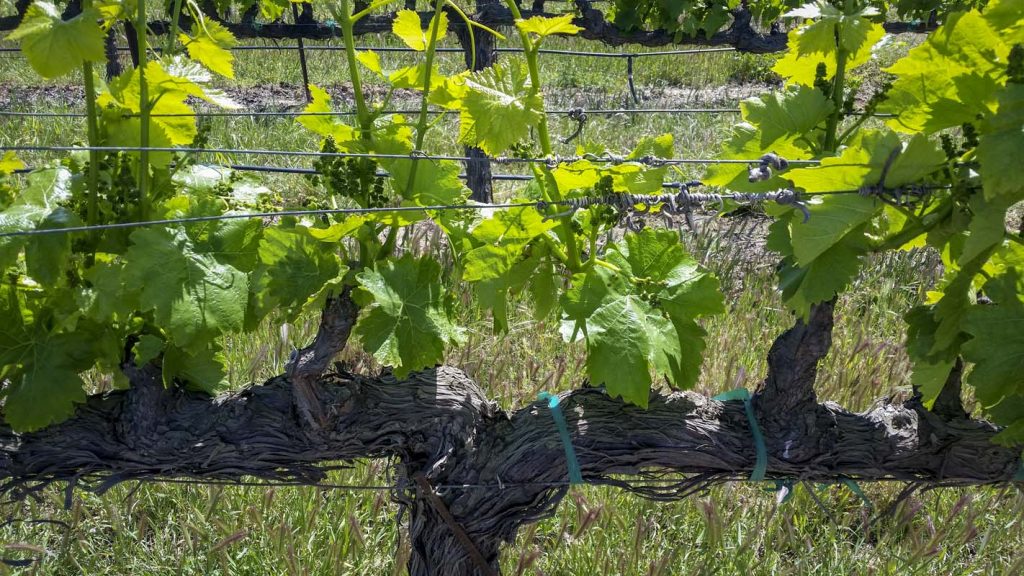
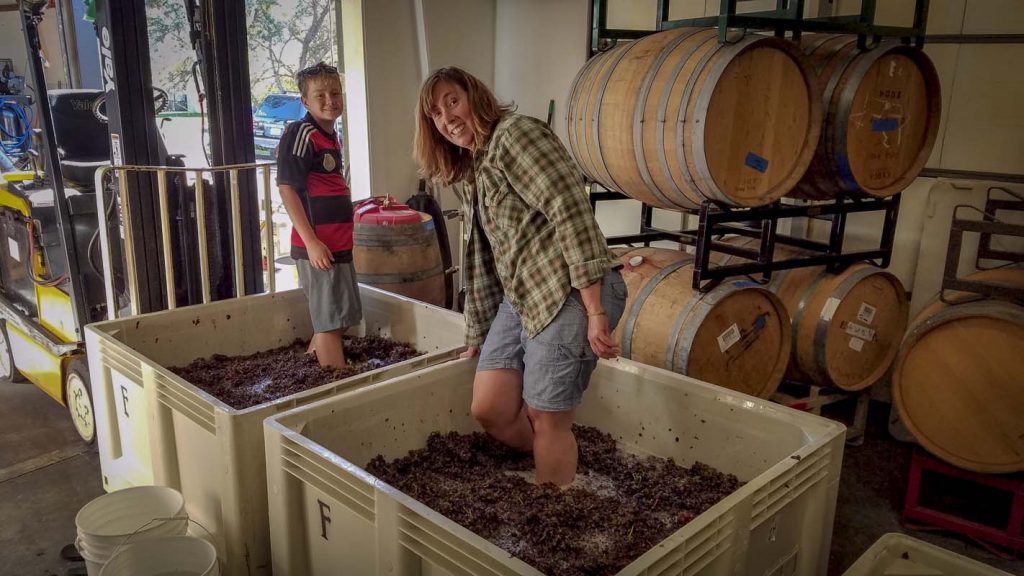
Deux Punx’s laissez-faire attitude encompasses their growers too, “We want people who mimic what we do in the cellar,” says Schaaf. To save time, Deux Punx has literally mailed buckets and cheese cloth to growers to get them starting a pied de cuve prior to fermentation. “They do it, they’re excited about it, but some… shake their heads,” says Schaaf.
After first meeting in 2005, Schaaf and Olson began production in 2007 with a modest 60 cases, with today’s production averaging in the 700 to 800 cases per annum. Winemaking has been based in the City of Napa since 2009, for financial reasons, and Deux Punks does what they can to keep their wines affordable. “I wouldn’t buy a $45 pét-nat, I’d buy a $25 pét-nat,” says Schaaf. That’s our philosophy on things.” Not surprisingly, that’s exactly what Deux Punx makes. “[Our wines are] priced at what we would buy ourselves,” says Schaaf.
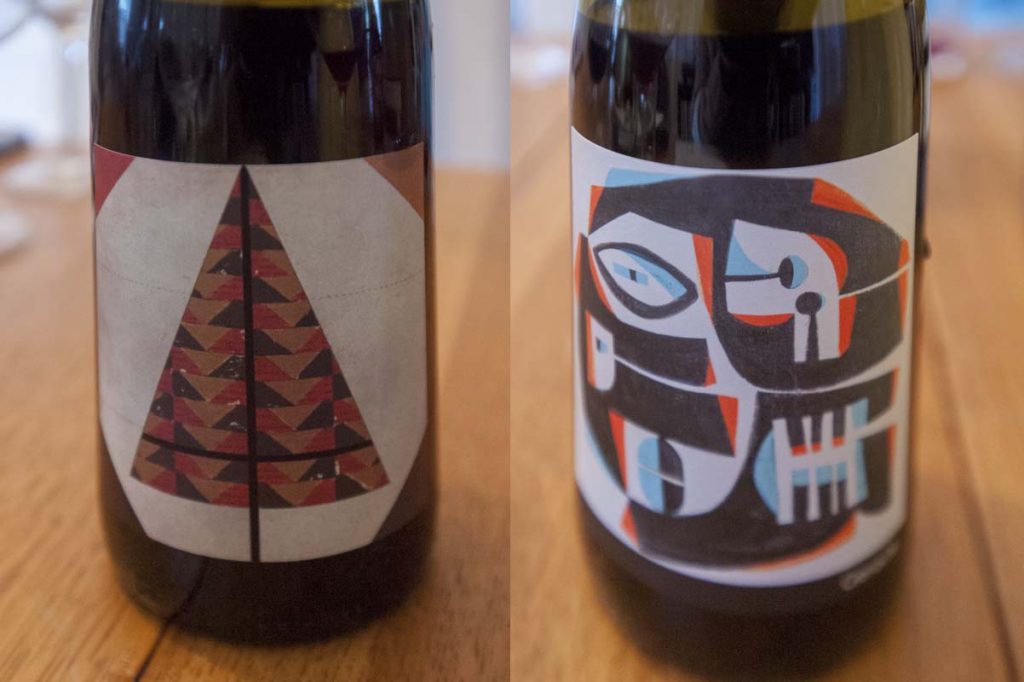
But why natural wine in particular? Schaaf explains he gravitated to natural wine for its tolerance, an attitude dear to skaters. In 2000, Schaaf became a member of Bonny Doon Vineyards’ wine club, blown away by Randall Graham’s eccentric approach to winemaking, calling it the first “weird wine I got into.” And whilst not specifically low interventionist in approach, Schaaf’s cites the defunct Crushpad, started in San Francisco’s Dogpatch, as another important stepping stone in his discovery of the winemaking process. It’s not a hard stretch to see the appeal of rule-breaking beloved to natural winemakers; after all, they are the punks of the wine world.
On the flipside, at times Schaaf can feel a negative effect to being “an outsider,” noting that their wines “just don’t fit in” at wine fairs like RAW or Brumaire. As a further illustration, Schaaf recounts his experience on the East Coast with previous distributors when they were told “we weren’t ‘the buzz.’” Luckily Schaaf seems disinterested in being purely fashionable; it’s the quality that counts.
Schaaf’s attitude is refreshingly unpretentious and down-to-earth, there is no sense of showmanship or ego, just a love of simplicity and honesty.
And in the end, what is more punk than honesty?
